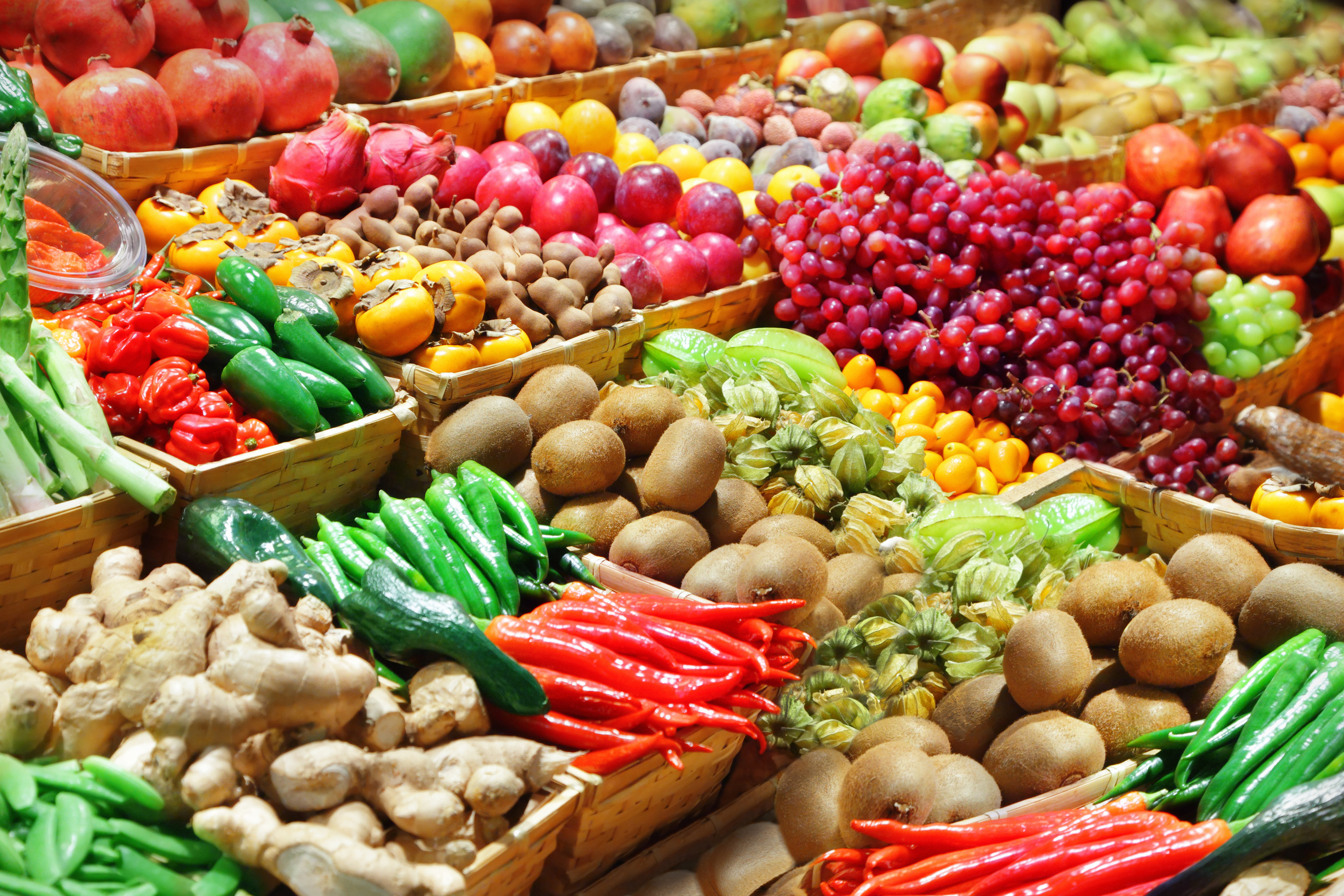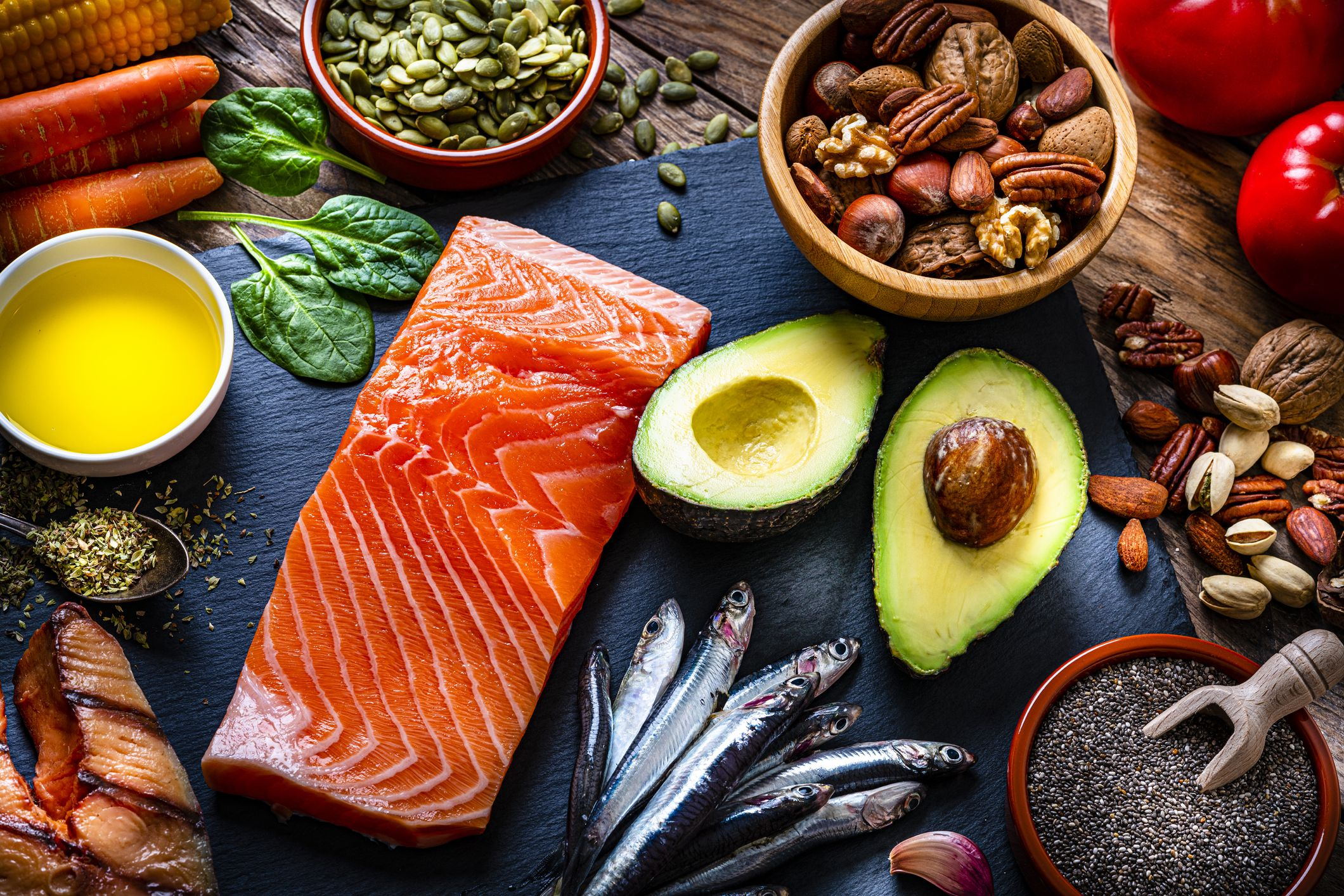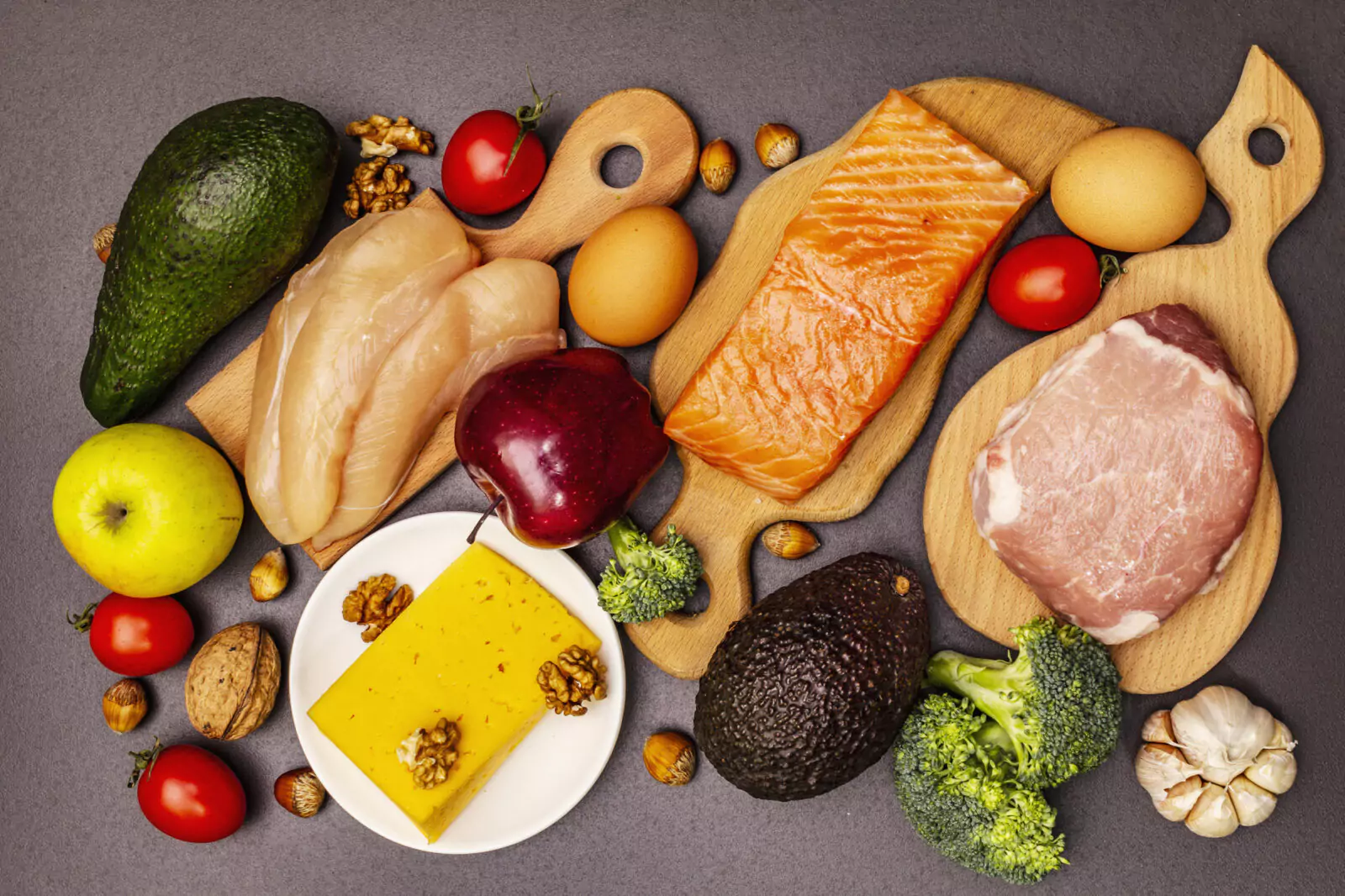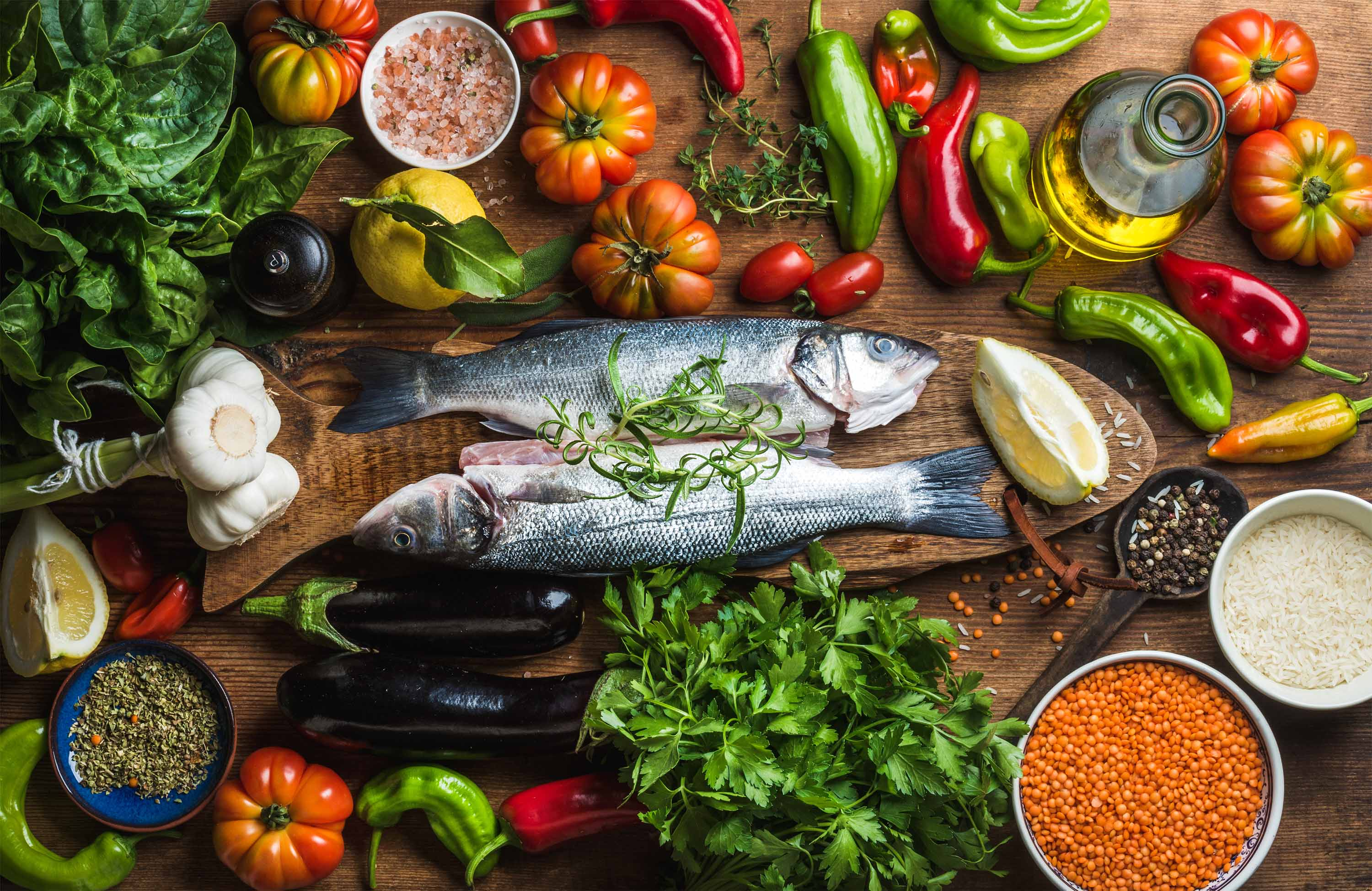
Fueling Your Brain: The Importance of Nutrition for Teenage Cognitive Performance
Discover how the right diet can boost your mental focus, memory, and overall academic success as a C...


Explore practical strategies to develop a positive relationship with food and maintain a balanced diet during the transformative teenage years.
Hey, so like being a teenager is pretty crazy right now. Everything's changing super fast and sometimes I don't even know what my body needs anymore. One day I'm hungry all the time, next day I barely want to eat anything. My friends are all dealing with the same stuff too - trying to figure out what's actually good for us when there's so much confusing information everywhere.
I started researching this because honestly, I was getting tired of feeling tired all the time. Plus my hockey coach keeps telling us about proper nutrition, but most of what he says doesn't make sense when you're dealing with school stress, part-time jobs, and trying to have some kind of social life. Canadian teens like us face some specific challenges too - our winters are long, we spend lots of time indoors, and let's be real, poutine is everywhere.
What I've learned is that good nutrition during teenage years isn't about following some perfect diet plan. It's about understanding what your body actually needs when it's growing and changing, and finding realistic ways to give it those nutrients. This isn't going to be another article telling you to eat more vegetables - though that's important too. Instead, I want to share what actually works when you're dealing with real teenage life.
The stuff I'm sharing comes from talking to nutritionists, reading actual research, and testing things out myself and with friends. Some of it might surprise you, especially the parts about timing your meals and dealing with growth spurts. Let's get into the real strategies that can help Canadian teens build a healthy relationship with food that actually lasts.
Okay so first thing - teenage bodies are basically like cars that are still being built while driving down the highway. Your body needs way more fuel than most people realize, but it also needs the right kind of fuel at the right times. I used to think I was just being greedy when I'd eat huge portions, but it turns out teenagers actually need more calories per pound of body weight than adults do.
According to Health Canada, teenage boys need between 2,500-3,200 calories per day, and teenage girls need 2,000-2,400 calories. But here's what they don't tell you - those numbers can be way higher if you're active, going through a growth spurt, or dealing with stress from school. I've tracked my eating for weeks and found that during hockey season, I actually need closer to 3,500 calories just to maintain my energy levels.
The key nutrients that Canadian teens need more of include iron (especially girls), calcium for bone development, zinc for immune function, and B vitamins for energy metabolism. But getting these from supplements isn't the same as getting them from food. Your body absorbs nutrients way better from real food sources, plus you get other beneficial compounds that work together.
Growth spurts are wild. One month you're eating normal amounts, then suddenly you're hungry every two hours and nothing seems to fill you up. This is completely normal and fighting it usually makes things worse. During growth spurts, your body can need up to 500 extra calories per day, and trying to restrict eating during these times can actually slow down growth and mess with your metabolism.
The best strategy I've found is to keep healthy, calorie-dense foods available all the time. Things like nuts, seeds, whole grain crackers with cheese, or homemade trail mix. This way when those intense hunger waves hit, you're not reaching for whatever processed stuff is most convenient.
Most meal planning advice is written for adults who have time to prep elaborate meals and shop for fresh ingredients twice a week. That's not realistic when you're juggling school, activities, maybe a part-time job, and trying to have some downtime. Plus in many parts of Canada, fresh produce is expensive and sometimes hard to find, especially in winter.
What actually works is building meals around a few key components that you can mix and match. I focus on having a protein source, a complex carb, some healthy fats, and whatever vegetables I can actually afford and will actually eat. This might mean frozen vegetables instead of fresh, canned fish instead of fresh, or buying whatever protein is on sale that week.
Some of the most nutritious foods are also the cheapest, especially if you buy them in bulk or when they're on sale. Oats, eggs, canned fish like salmon and sardines, dried beans and lentils, frozen vegetables, and seasonal Canadian produce can form the foundation of a really healthy diet without breaking the bank.
The trick is learning to cook a few basic techniques really well rather than trying to follow complicated recipes. If you can make a good stir-fry, a hearty soup, and know how to prepare eggs a few different ways, you can create tons of variety with whatever ingredients you have available.
This is probably the hardest part about eating well as a teenager. Your friends want to go for fast food, there's pizza at every school event, and trying to eat differently can make you feel like you're being weird or difficult. I've definitely been in situations where I felt like I had to choose between eating the way I wanted to and fitting in with my friends.
What I've learned is that most people actually don't care as much as you think they do about what you're eating. And the friends who do care, or who give you a hard time about making healthier choices, maybe aren't the best friends to have anyway. But there are definitely strategies that make social eating easier without making you feel left out.
When everyone's going out for food, suggest places that have options you actually want to eat, or offer to choose the restaurant sometimes. Most chain restaurants in Canada now have healthier options, and many post their nutrition information online so you can check it out ahead of time. If you're going somewhere that doesn't have great options, eat something small before you go so you're not starving and more likely to order something you'll regret later.
For parties and events with lots of junk food, I usually bring something I actually want to eat and can share with others. This way I know there's at least one option I feel good about, and often other people are grateful someone brought something healthier too. Homemade energy balls, cut vegetables with a good dip, or even just a big fruit salad can be really popular.
The most important thing is finding balance. You don't have to eat perfectly all the time, and occasionally having pizza with friends or trying new foods at social events is part of building a healthy relationship with food. The goal is making choices that support your health most of the time, not being perfect all the time.
Canadian school days are long, especially when you factor in commuting, after-school activities, and homework. Many teens I know struggle with energy crashes in the afternoon, then feel too tired to eat properly when they get home, which creates this cycle of poor eating and low energy that's hard to break out of.
The key is eating for sustained energy rather than quick fixes. This means focusing on foods that provide steady blood sugar rather than foods that cause spikes and crashes. Protein, healthy fats, and complex carbs work together to provide energy that lasts for several hours, while sugary snacks or refined carbs might give you a quick boost but leave you feeling worse later.
The snacks that work best for maintaining energy include combinations of protein and complex carbs. Apple slices with almond butter, whole grain crackers with cheese, trail mix with nuts and dried fruit, or even just a hard-boiled egg can make a huge difference in how you feel throughout the day. These foods take more energy to digest, which actually helps keep your metabolism active and your energy more stable.
Timing matters too. Instead of waiting until you're starving or your energy crashes, try eating something small every 3-4 hours. This might mean having a snack between breakfast and lunch, another one in the afternoon, and maybe something small before dinner if it's going to be late. This prevents the extreme hunger that leads to overeating or making poor food choices.
Hydration is huge too, especially in Canadian winters when the air is dry from heating systems. Dehydration can make you feel tired and hungry even when what you really need is just water. I keep a water bottle with me all day and try to drink from it regularly rather than waiting until I feel thirsty.
Most of the healthy eating advice out there assumes you can completely change everything about how you eat overnight. That doesn't work for anyone, but it especially doesn't work for teenagers who are already dealing with tons of changes and stress. The habits that stick are the ones you build gradually and that fit into your actual life, not some idealized version of your life.
Start with one small change that feels easy and do it consistently for a few weeks before adding anything else. Maybe it's having a glass of water when you wake up, or adding a piece of fruit to your lunch, or keeping nuts in your backpack for when you get hungry between classes. These small changes add up over time and create momentum for bigger changes later.
Everyone's situation is different - different schedules, different budgets, different family situations, different food preferences. What works for your friends might not work for you, and that's completely fine. The goal is finding a pattern of eating that gives you energy, makes you feel good, and fits into your real life, not someone else's life.
Pay attention to how different foods make you feel, both immediately and a few hours later. Some people do better with larger meals less frequently, others need smaller meals more often. Some people need more carbs, others feel better with more protein or fat. There's no one perfect way to eat, and figuring out what works for your body is part of building a healthy relationship with food.
Don't get discouraged if you have days or even weeks where you don't eat as well as you'd like. This happens to everyone, and it doesn't mean you've failed or should give up. Just get back to your healthy habits when you can, and remember that what you do most of the time matters way more than what you do occasionally.
The eating habits you develop as a teenager don't just affect how you feel now - they create patterns that can last your whole life. Learning to choose foods that make you feel good, to listen to your body's hunger and fullness cues, and to enjoy food without guilt or stress are skills that will serve you well long after you graduate from high school.
As Canadian teens, we're lucky to have access to incredible variety in our food choices, even if it doesn't always feel that way when you're trying to eat well on a budget. Learning to make the most of what's available, to cook basic meals for yourself, and to make informed choices about nutrition will give you independence and confidence that extends far beyond just eating.
Remember that developing a healthy relationship with food is a process, not a destination. There will be times when you eat too much junk food, times when you're too stressed to cook, times when you make choices you wish you hadn't. That's all part of learning, and it doesn't mean you're doing anything wrong. The goal is progress, not perfection, and building habits that support your health and happiness over the long term.
json
Discover how the right diet can boost your mental focus, memory, and overall academic success as a C...

Learn how to create healthy, satisfying meals while maintaining the right portion sizes for your age...

Explore the benefits of a balanced diet and learn practical tips to improve your overall well-being ...